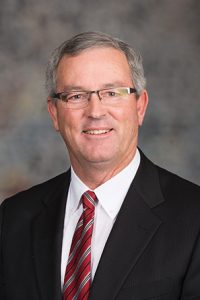Property tax offset for streamflow projects advanced
After a successful cloture motion, lawmakers gave first-round approval Jan. 30 to a bill that is meant to reduce the impact of streamflow augmentation projects on county tax rolls.

As introduced by Sen. Dan Hughes of Venango, LB758 would require state natural resources districts and interlocal entities that buy private land for the development of a streamflow augmentation project to work with the county in which the project is located to reduce the project’s impact on the local property tax base.
Senators voted 46-1 to adopt a Natural Resources Committee amendment that would replace the bill and instead would authorize NRDs and interlocal entities to make voluntary payments in lieu of taxes to the county. The amount of the payments would not exceed the property taxes that would have been paid if the land were subject to taxation.
Hughes said the amendment would address the loss of property tax revenue to counties under the Rock Creek Augmentation Project and the Nebraska Cooperative Republican Platte Enhancement project. Both projects help the state meet streamflow requirements under the 2003 Republican River Compact, which allocates the use of surface water between Colorado, Kansas and Nebraska.
Lincoln and Dundy counties both lost property tax revenue after those projects converted irrigated land to grassland, which has a much lower tax valuation. N-CORPE and Rock Creek have paid property taxes assessed by the counties but they have done so in protest because it was not clear if a public entity should pay property taxes on that land serves a public purpose.
In July 2017, the state Tax Equalization and Review Commission ruled that N-CORPE was exempt from paying property taxes for that reason. Lincoln and Dundy counties appealed that ruling to the state’s higher courts.
Hughes said the amendment, by allowing N-CORPE to make payments voluntarily, avoids that prohibition while helping to offset lost property tax revenue to the counties.
The amendment also would require joint entities or NRDs that acquire private land for the purpose of developing and operating a water augmentation project to give public notice of the project, including an estimate of the amount of water to be pumped and the project’s time frame.
It also would require a public hearing on the project and the input of county officials and adjoining landowners on ways to mitigate the project’s effects on the county.
Additionally, NRDs and interlocal entities would be required to publish an annual report on the project’s finances and activities, including the amount of water pumped and the amount of revenue gained from land leases. NRDs and interlocal entities would have to submit those leases to the county assessor within 30 days after the lease’s effective date.
Omaha Sen. Ernie Chambers filed several motions in an effort to extend debate on the bill. He filed a motion Jan. 25 to bracket the bill until April 18, which would end debate on the bill for this session. The motion failed Jan. 30 on a 0-43 vote.
After six hours of debate over three days, Hughes filed a motion to invoke cloture, or cease debate and vote on the bill. The motion succeeded 45-1.
Senators then voted 47-0 to advance the bill to select file.


